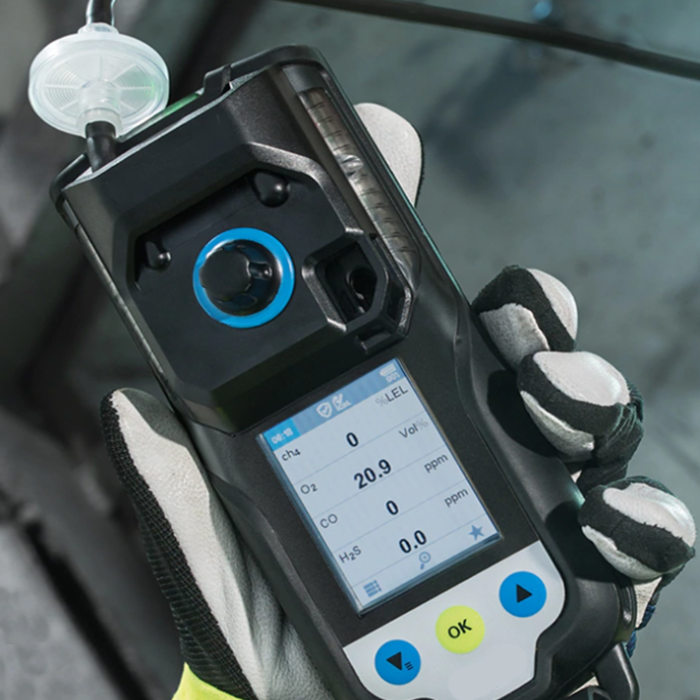3t Digital Store
Authorised Gas Tester (AGT)
Couldn't load pickup availability
Buying for a business? Get in touch with sales@3t-transform.com
| CODE | T045 |
| DURATION | 240mins |
| LANGUAGE | English UK |
| EXPIRY | Never Expires |
Level:
Authorised Gas Tester
Target audience:
This course is suitable for personnel working towards becoming certified as an Authorised Gas Tester.
Course Goal/Description:
This course ensures that those personnel working towards the role of Authorised Gas Tester (AGT) have the underpinning knowledge to conduct gas tests for oxygen levels, flammable and toxic gases safely, and conduct gas testing within confined spaces and in preparation for, and during, hot work. The course also provides learners with knowledge on legislative requirements, gas measuring and monitoring equipment, and gas testing documentation requirements.
Learning Objectives:
This Authorised Gas Tester course comprises 5 modules:
Module 1: Legislative Controls and Safe Systems of Work
Module 2: Gas Testing and Monitoring Equipment
Module 3: Gas Testing for Hot Work
Module 4: Gas Testing in Confined Spaces
Module 5: Gas Monitoring
Learning Outcomes:
Module 1: Legislative Controls and Safe Systems of Work
To successfully complete this module, you must be able to demonstrate your understanding of:
Confined space criteria
The type of operations being tested for flammable and toxic gases
The hazards of operations within an oxygen-enriched, oxygen-deficient, toxic or flammable environment
Carrying out a suitable and sufficient risk assessment
Understand the safe systems of work, how to work within the safe system of work and the associated responsibilities
The implications of statutory and organisational requirements
Interpreting operational requirements
How to select, use and care for PPE and RPE
Accessing and interpreting operational instructions
Module 2: Gas Testing and Monitoring Equipment
To successfully complete this course, you must be able to demonstrate your understanding of:
The operating principles of atmosphere monitoring and measuring equipment and failure modes
The strengths and weaknesses of various types of atmospheric flammable and toxic gas detection equipment
Detectors used for the flammable product
Correct selection of aspirating or non-aspirating detectors to obtaining representative atmosphere sample
Equipment required for testing for hydrocarbons in inert atmospheres
Gas detector pre-start checks
Determining the extent of the test boundaries
Calibrating the instruments used in atmospheric testing
Sources of assistance during the event of damaged or defective equipment
Interpreting normal and abnormal results
Documenting the results and advising relevant personnel
Module 3: Gas Testing for Hot Work
To successfully complete this course, you must be able to demonstrate your understanding of:
Hot work (any operation involving naked flames or producing heat and/or sparks or any operation that has spark potential)
Type of operations being tested for flammable and toxic gases
The principles of hot work gas testing
Acceptable levels of flammable gases and the correct amount of oxygen
Carrying out a suitable and sufficient risk assessment
How to set up the relevant detectors for each gas testing application and confirm functioning correctly
The range and frequency of tests and monitoring and retesting requirements
Where to site portable or transportable equipment that will be used to continuously monitor the atmosphere
Module 4: Gas Testing in Confined Spaces
To successfully complete this course, you must be able to demonstrate your understanding of:
The hazards and properties of flammable and toxic gases
The behaviour of different gases
The range and frequency of tests and monitoring and retesting requirements after initial entry
Acceptable levels of flammable gases and the correct amount of oxygen
The implications of WEL for toxic gases and LEL for flammable gases
How to set up the relevant detectors for each gas testing application and confirm functioning correctly
Performing gas tests in sequential order
How to obtain representative atmosphere samples
Taking various samples to locate varying concentrations of gases and vapours
Importance of sampling confined spaces at a distance
Testing flammable gases in inert atmospheres
Where to site portable or transportable equipment that will be used to continuously monitor the atmosphere
Module 5: Gas Monitoring
To successfully complete this course, you must be able to demonstrate your understanding of:
Roles and responsibilities of the Fire Watch
Roles and responsibilities of the Standby Person
Responsibilities of the Gas Monitor role
The potential arrival of flammable gas or vapour clouds at the hot work site
Impact of environmental changes on working conditions
Importance of checking controls on the equipment are as specified
Importance of regular communication
Sources of assistance and specialist support
Completion of relevant documentation
Share


